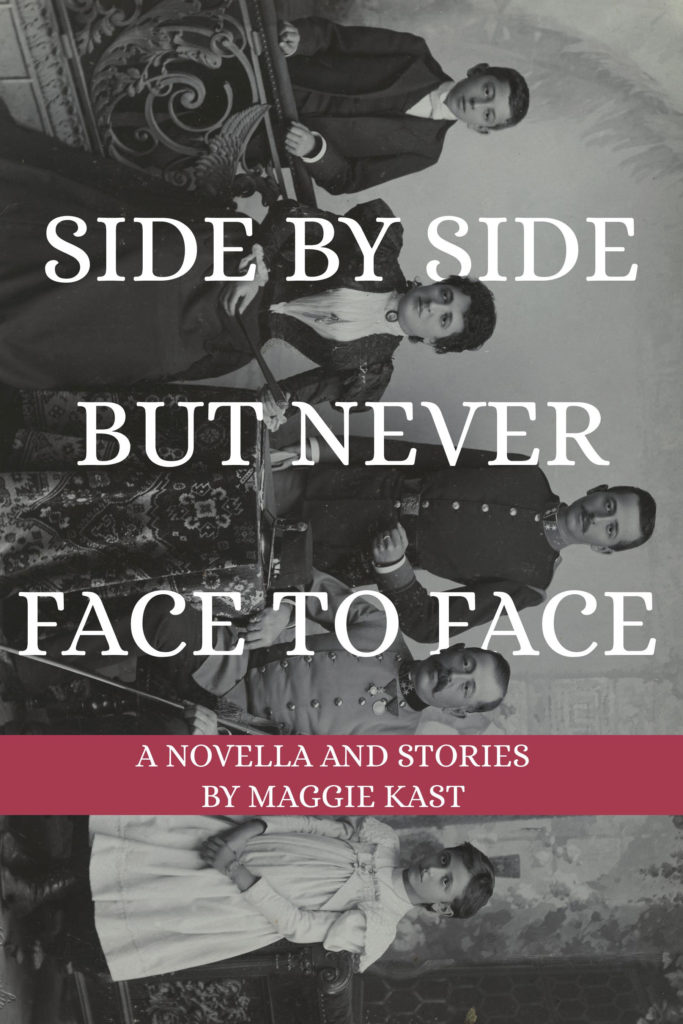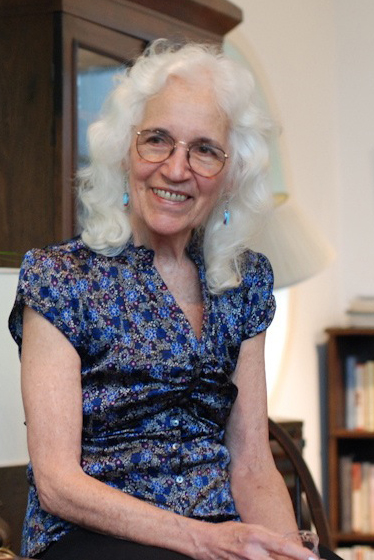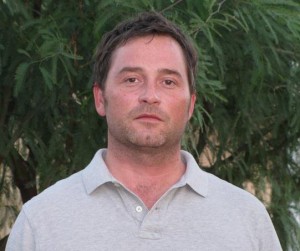 On November 8th the Superstition Review Reading Series will feature Melissa Pritchard at Arizona State University’s Tempe Campus. Her reading will take place at 7 p.m. in the Memorial Union’s Pima Auditorium. Pritchard has published several books such as Phoenix: A Novel, Late Bloomer and Devotedly, Virginia: The Life of Virginia Galvin Piper. She has also published her essays Finding Ashton and A Woman’s Garden, Sown in Blood in O, The Oprah Magazine, and The Collagist 4, respectively. I had the opportunity to discuss the upcoming reading and Pritchard’s latest novel The Odditorium.
On November 8th the Superstition Review Reading Series will feature Melissa Pritchard at Arizona State University’s Tempe Campus. Her reading will take place at 7 p.m. in the Memorial Union’s Pima Auditorium. Pritchard has published several books such as Phoenix: A Novel, Late Bloomer and Devotedly, Virginia: The Life of Virginia Galvin Piper. She has also published her essays Finding Ashton and A Woman’s Garden, Sown in Blood in O, The Oprah Magazine, and The Collagist 4, respectively. I had the opportunity to discuss the upcoming reading and Pritchard’s latest novel The Odditorium.
Superstition Review: How is The Odditorium different from your other works?
Melissa Pritchard: The Odditorium is a collection of seven stories and a novella. Most are based on unusual or enigmatic historical figures, all look at the ways architecture exerts subtle or unsubtle pressures on human consciousness. So they are different in those ways from most of my previous stories. More than half of them do not approach narrative in a traditional or conventional way. I experiment in one story, “Watanya Cicilia,” with a pastiche of historical documents, songs, research and fiction, contrasting the Wild West Show and the real, genocidal story of the West. “The Hauser Variations,” based on the life of Kaspar Hauser, a German boy kept in an underground dungeon throughout his childhood and then mysteriously released into a second tragic fate, is based, in terms of narrative strategy, on Bach’s Goldberg Variations. In another story, “Patricide,” two sisters meet in a haunted hotel in Richmond, Virginia, its courtyard said to be a place where Edgar Allen Poe once played as a child. In this hotel, one of the sisters goes mad. So I was less interested in the traditional structure of plot and expected emotional release than in ethics, history, architecture and the effects of these upon both historically based and purely imagined characters.
SR: What has in been like working with Bellevue Literary Press?
MP: We are in the earliest phases; I accepted their offer to publish The Odditorium in January, 2012, and had a lengthy phone conversation with the publisher, Erika Goldman. I was so impressed with her aesthetic understanding of the collection, her excitement over the departures I had taken in terms of subject and form, I became convinced this was the proper home for these pieces. The BLP website is terrific, too, as is their history with Bellevue Hospital and New York University’s Medical Center. They publish elegant books at the nexus of art, science and medicine, and only publish two fiction titles a year. One of this year’s fiction titles, Tinkers, by Paul Harding, won the 2010 Pulitzer Prize, resulting in a flurry of attention for the press, with articles and interviews in The New York Times, NPR, The Wall Street Journal, and other media venues. It’s a tiny press operating out of Bellevue Hospital, and they do terrific work. I come from a family of surgeons, doctors and nurses, and have always been fascinated by science, medicine and the history of medicine, so this could not be a better place for this book, as a number of the stories deal with medical histories, issues and questions.
SR: How has your time at ASU influenced your writing?
MP: Because my time to write is limited, I have to be disciplined. Sometimes I find it quite difficult, having time and energy to both write and teach. A fragile balance at best. On the other hand, teaching keeps me awake to current trends in literature, to remaining relevant to students year after year, and I am blessed to work with some incredibly gifted students, both graduates and undergraduates. I always say my students teach me in equal proportion to what I teach them. At least I feel that. Also, ASU has always been tremendously supportive of my outside work–traveling for research, traveling to conferences, traveling for reportage or for humanitarian work, which I also do. I am extremely grateful for the university’s support.
SR: What are you most looking forward to as the Superstition Review reading draws near?
MP: I have a background in theater, in acting, so I always love reading my work aloud in a public setting…for me, it is as close to performance as I come these days. I love an audience and I love hearing the piece I’ve chosen come alive in the room, seeing the reactions of the listeners, answering questions afterwards. It is truly a wonderful exchange. This past summer at The Glen, a writing workshop in Santa Fe, New Mexico, part of Seattle Pacific University’s MFA Program, I read my collection’s title story, “The Odditorium,” to a full house. It is a comic piece about Robert Ripley of Believe It or Not fame, and other audiences have responded with laughter and lively commentary afterwards. This audience was dead silent. The room was dark, I couldn’t see anyone. I kept reading, on and on, by the little glow from the podium light. Afterwards, no one even asked questions! I was horrified, sure I had failed, sure the story had been a failure…I wanted to crawl under a carpet had there been one. What I found out later, was that the story had gone over so well, people couldn’t react, they went silent–stunned. I won’t repeat the praises I later heard, but then I became overwhelmed the other direction–was my story really that good? So one never knows, and one always doubts. Also, I’m always a little nervous before a reading, hoping it goes well, that I don’t disappoint people who made the time and effort to come to my reading when there are dozens of other things for them to do….I am also always scared no one will show up, and thrilled to pieces when they do. Finally, I’m looking forward to meeting all the staff and interns at Superstition Review. They’ve even managed to arrange to have copies of A Public Space #11 mailed from New York to be available for sale on the night of the reading. (I’ll be reading a story, “Ecorche, The Flayed Man,” from that issue.)
SR: What are you currently working on creatively?
MP: I’m in between three pieces right now…a non-fiction piece about my miniature dachshund, Simon, a speech about Sr. Airman Ashton Goodman and the Afghan Women’s Writing Project that I will be giving at the Air Force Institute of Technology in December, and a novella set in 19th century Florence, Italy.
SR: What advice would you give to an aspiring author?
MP: Read voraciously. Read the best work you can find. Read what interests you. Be observant. Practice empathy and compassion. Know that what you write ultimately reflects who you are. Write every day, even if only for an hour and be humble in your practice while aspiring to greatness. Be gentle with yourself, and always reward yourself in some small way after a writing session. Leave the writing at a place where you are eager to return the next day.




